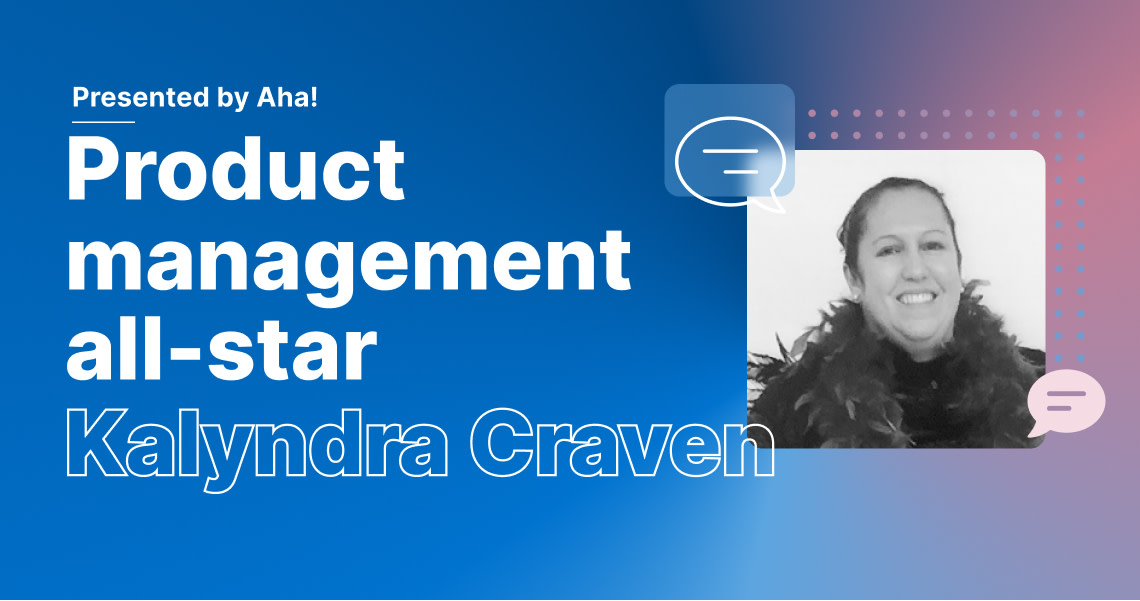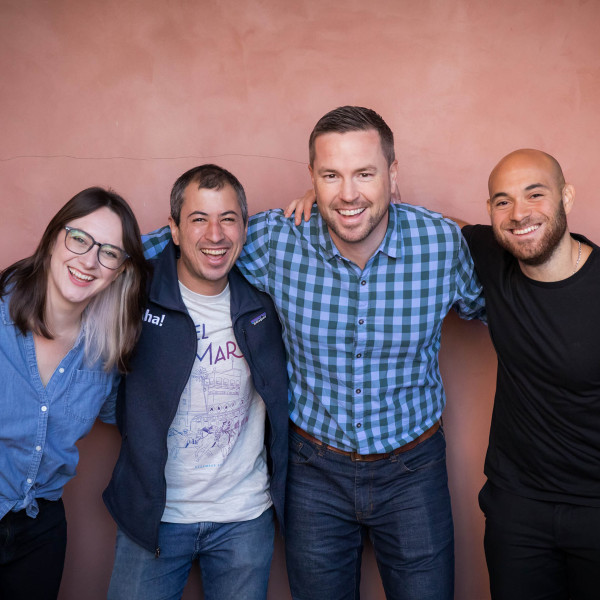
Product Management All-Star: 6 Questions With Kalyndra Craven
We have the best job in the world — we build software for software builders. And we are connected with people who are building what is next for customers around the world. So we are asking exceptional product folks who are shaping the future to share their knowledge with you.
Kalyndra Craven is a director of product operations at Thomson Reuters with a background in both product and project management. In her role, Kalyndra streamlines processes across a portfolio of over 300 products and has spearheaded a major consolidation of different business units into a unified instance in Aha! software. She thrives in complex environments, embracing strategic initiatives that impact large, diverse programs and teams.
Based in Ann Arbor, Michigan, Kalyndra spends her free time watching her kids participate in robotics, swim, basketball, and cross-country. She is also an avid fan of Tottenham Hotspur F.C.
When did you learn product management existed?
"Early in my career, I was hired as a business analyst. At that point, I was exposed to product management but it was not part of my daily work. When I eventually transitioned to the product team, I was able to get a close-up view of the critical role product management plays across an organization. I learned how forming a product vision, setting strategy, and identifying the ‘why’ behind your product sets you up to build the right thing for your customers at the right time."
What was your first product job?
"I was a development project manager on a cross-functional team where there was no distinction between product and tech. When the groups split, I stayed with the group that became the product team. Over the course of my three years with that group, I transitioned from project management to product management and operations."
What is the most important trait for a product manager?
"Being customer-obsessed. Today, market and customer needs change at lightning speed — which can make data you collected even a few weeks ago obsolete. If you are constantly learning from and interacting with customers, you can make small pivots based on fresh data. This leads to an agile mindset focused on ongoing improvements instead of huge shifts that may be outdated by the time they are implemented."
What would you recommend a new product manager not do?
"Customer proxies and assumed knowledge are both like quicksand — and should not be at the core of product direction. Strategy and roadmap decisions need to be driven by data gathered directly from a wide range of customers. Of course, there is always a time for internal representatives to make product recommendations. But what product managers need to do is to be clear on the customer problem. You should either require data from the customer proxy to support that problem or analyze your own data to ensure the proposed solutions match customer needs."
If product management had a slogan, what would it be?
"It would be: ‘Product managers: solving your most important problems with solutions you did not even know were possible.'
Customers tend to make very specific feature requests — but there may be a different solution that is more elegant, efficient, or effortless. This is where product managers shine: we are constantly absorbing feedback and data to help solve customer problems, big or small. As product experts, product managers work to understand customer pain points and offer the best solutions."
What will change most about managing products in the next decade?
"In a time where large-scale virtual reality is on the horizon, product managers are uniquely positioned to develop new forms of product interaction. Additionally, product managers 'meeting customers where they are,' either in real life or virtually, could amount to a huge shift in the profession."
Build products like you always wanted. See for yourself — start a free 30-day trial.
